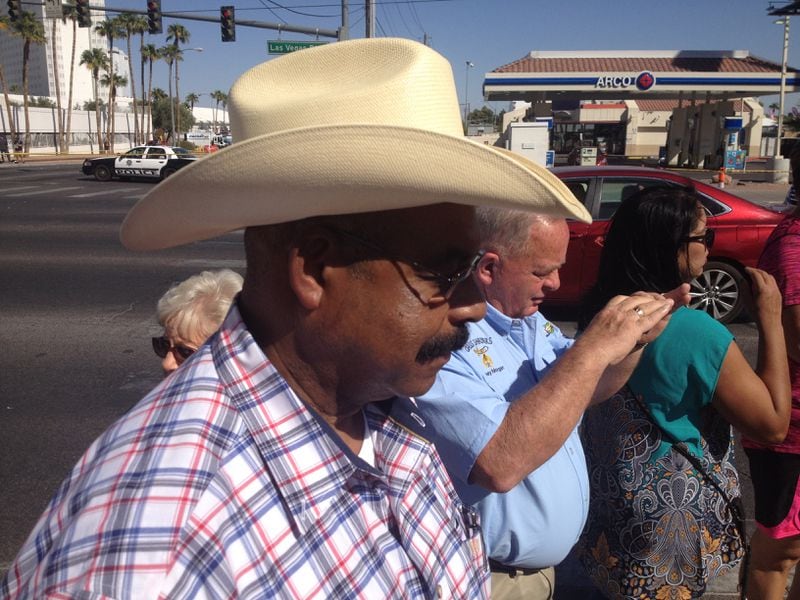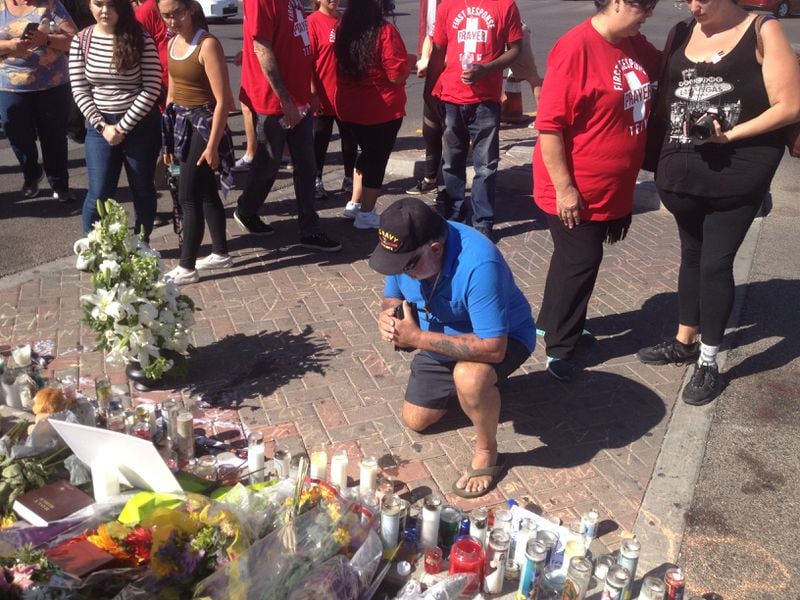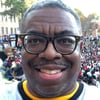The Las Vegas Strip, or at least a major part of it, is perhaps the largest crime scene in America right now.
Police tape cordons off the area where 58 people lost their lives and roughly 500 were injured at the Route 91 Harvest Festival, one of the deadliest mass shootings in modern American history.
The two windows at the Mandalay Bay Resort, where 64-year-old Stephen Paddock built his sniper's nest, are still busted out.
But the fountains at the famed Bellagio Resort & Casino still flowed and the giant faces of David Copperfield, Celine Dion, Donny Osmond and a famous Prince impersonator beamed throughout the strip.
Showgirls, dealers and valets hustled to work. Tourists from all over the world walked the streets with their fanny packs and cameras, ready to eat, party and gamble. Las Vegas gets 43 million visitors annually.
Slowly, Las Vegas is coming back to life.
“When you realize what went on here, you realize how lucky you are,” said Mario Lawrence, on vacation from St. Lucia.
Lawrence and Dorothy Guenther were hanging out at the New York, New York hotel Sunday night when gunshots disturbed them. On Wednesday, they were on the corner of Las Vegas Boulevard and Reno. Dozens of people had gathered on a median where a makeshift memorial had been set up. It was hard not to feel the weight of those two busted windows some 200 yards from them.
“Las Vegas can recover from this, but it will be tough,” said Rob Lucas.
He should know. He and a group called the “First Response Prayer Team” drove to Las Vegas from San Bernardino, Calif.
In 2015, 14 people were killed and 20 were wounded in a mass shooting in San Bernardino.
“We came here because we want to give people a sense of hope,” Lucas said. “We faced this. It is going to take some time and people are still talking about it. But if they come together it makes the job a little easier.”
J. Chapin, who rode his motorcycle down to the Strip on Wednesday, said the shooting is obviously the “No. 1 water cooler conversation” around Las Vegas.
“Waiting in line at the bank, people are talking about how shockingly tragic this is,” Chapin said.
Asked what drew him to the Strip, Chapin said he was “morbidly fascinated by the shooting.”
He gazed at the windows, which seemed so far away, and wondered why.
“What was he thinking,” Chapin said. “What was his motivation?”
But it is not as if Las Vegas has forgotten. Many of the famed marquees used to advertise shows now call for prayers. “Vegas Strong” signs are everywhere. So are police and FBI investigators.
A day earlier, the sun had barely broken when 100 people got in line at United Blood Services in Las Vegas to give the gift of life. More would come, and wait, even if they were unsure that they would get in.
In a strange way, the line outside United Blood Services took on the feeling of something else — something calmer. Tents covered the hundreds of potential donors, while young men and women darted in and out of the line offering food like waiters at a cocktail party. Nearby, pallets of bottled water were getting dropped off among all the fruit, drinks, sandwiches, pizza, burgers and fresh-baked goods that had been donated.
“I haven’t seen this since 9/11 — the outpouring. The random good Samaritans who want to donate everything from water to cookies,” said Mitzy Edgecombe, vice president of donor marketing and communications for United Blood Services. “We had so much water yesterday that we sent some to the convention center.”
More than $8.2 million had been raised since the shooting on a GoFundMe account.
Rick Alexander, a Vietnam veteran, knelt before the makeshift memorial and prayed. He said he had gone to one of the hospitals earlier to pray and would keep praying. He said a friend and his wife were at the concert Sunday night.
“They were that close,” Alexander said, putting his fingers together. “So I am saying a prayer for everyone. For Las Vegas.”
Michael Thomas walked the strip, wearing his cowboy hat and boots. He was in town from Houston for a convention of postal workers.
He arrived Sunday morning. But it was too late for him to buy tickets to the concert Sunday night. Otherwise, he would have been there.
“In a sense, I am happy I wasn’t there,” Thomas said. “But maybe I could have helped someone.”
About the Author








